
The Elder Scrolls IV: Oblivion Remastered Review
I was not assigned or tasked to write a review of The Elder Scrolls IV: Oblivion Remastered. I played it over the summer as a sort of curiosity. I've been a semi-regular contributor to RPG Site for nearly a decade now, and while I do not have the opportunity to play absolutely everything that releases in this space (who does?), I feel that I do manage to play and cover a decent breadth of RPGs in every given year. While The Elder Scrolls V: Skyrim was *not* one of the first RPGs I had played, it was still a somewhat formative one, and I've always wanted to revisit the Bethesda back-catalog, so to speak.
The somewhat surprising drop of a remaster of Oblivion earlier this year seemed like a perfect opportunity to fill a part of that gap. I suppose I approached it more academically than anything. I was not inspired or driven by a sense of nostalgia or something more earnest -- I felt more like an assignment that I should play Oblivion, because it's an important game that I should play, tautological as that logic is. It could potentially inform my critique of other RPGs, or maybe I could finally learn a little more about a game that I was keenly aware of but had deliberately ignored ever since its release nearly two decades ago; I wasn't entirely sure.
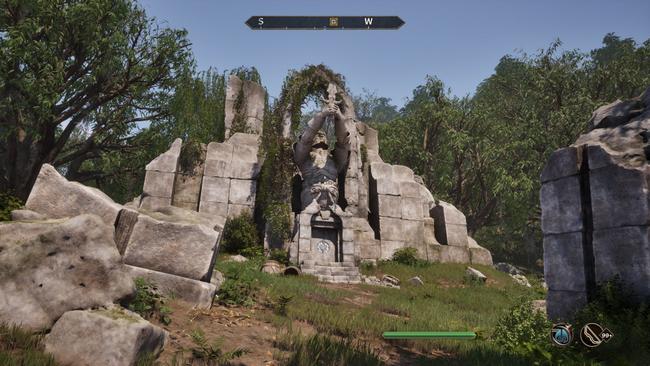
I remember working part-time retail jobs between late high school and early college around the time Oblivion first released. At the time, I knew it as a popular game, but it was not my sort of game. I was playing games like Final Fantasy XII and Xenosaga Episode III instead. I eventually grew to really love first-person RPGs (or at least, RPGs that can be played from a first-person perspective). It started with games like Skyrim, and grew over time to include titles like Fallout: New Vegas and Vampire: The Masquerade - Bloodlines (I played that one late). This year alone, I've played at least 4 such titles. Needless to say, I didn't quite know what I was missing at the time when I gave Oblivion the cold shoulder initially.
To help set the stage, Oblivion is a similar game to Skyrim in many ways, unsurprisingly. While making the comparison in that order might seem a bit manufactured, it is true to my experience, and to dance around that wouldn't really be honest. Regardless, a series of initial story events eventually has the player tasked to run around Cyrodil with the fate of the empire in their hands. At this point, I did the objectively correct thing and decided to thoroughly scour the map of all locations and quests before actually proceeding with my prescribed story destination, as is my right.
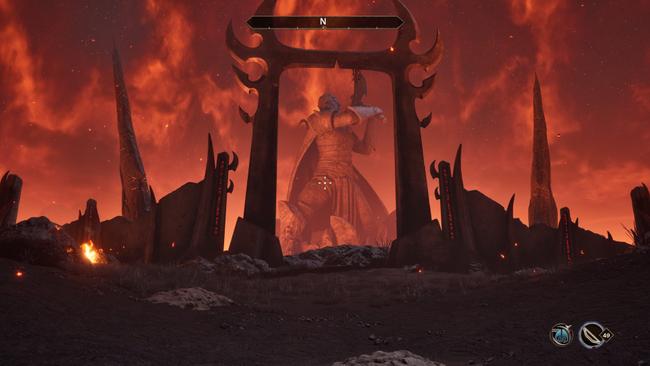
Even with a fresh coat of paint, it took me a bit to acclimate to the general presentation of the Oblivion remaster. After just coming off titles like Kingdom Come Deliverance II, Avowed, and even Tainted Grail: Fall of Avalon this year, everything around Oblivion felt a bit stilted. I'm no stranger to returning to older titles, including playing games like the original two Fallout titles long after their original time in the sun, but something about Oblivion required more time to get used to overall. I'm not sure if it was the robotic animations or the more muted green and brown color grading of most environments, but it didn't quite gel with me.
Looking back at the screenshots I took during my time with the remaster, it's admittedly tricky to square my rather whelmed response to my actual screencaps -- Oblivion Remastered can look stunning at times. I think it is primarily the character animations and lack of environmental variety that limited Oblivion from being better regarded by me from a visual perspective.
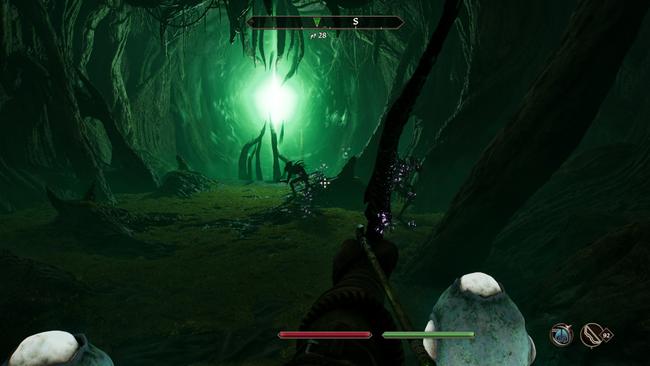
From a gameplay perspective, of course, one of the key points of contention is around level scaling. Even though I did not play Oblivion when it first came out, even I had heard all of the back and forth about how much the scaling present in Oblivion was simply too much. While the Remaster has made some significant tweaks around some of the base underlying mechanics, specifically around how leveling up works, my understanding is that the general scaling effects are largely the same as they were. Now, having a dynamic system that alters enemy or items attributes dependent on those of the player is not a new concept, and not one even exclusive to even western RPGs -- take a look at almost every SaGa title, for instance.
I admittedly hesitated for a bit when it came to how to broach this topic in my writeup here -- my experience with the scaling in Oblivion's remaster is colored by 20 years of hindsight, and I am sure anything that I could think to say around the topic has been thoroughly spoken to back in 2006. Is there anything I can meaningfully contribute to the conversation at this point?
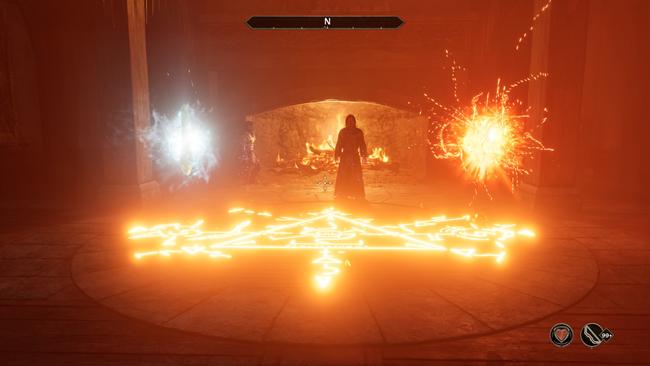
My main takeaway is that even thought I went into Oblivion Remaster keenly aware of the whole scaling thing and generally how it worked, I still managed to find myself frustrated by all of the same key things that I had read about all those years ago -- that exploration felt somewhat pointless because enemies would progress in strength regardless or my personal progress, or that finding items and gear felt more like the output of a math problem rather than that of a creative designer. As I got stronger, so did my enemies, and so did the loot and gear that I found while exploring. This existed in Skyrim (and other games), but Oblivion feels like a clear tent pole in this regard.
The sales pitch of a schema like this is a clear one. The idea is that none of my time as the player feels wasted and that I am always progressing in some fashion. Oblivion ensures that I will never find gear or enemies that are far, far below my current standing, and that any gear or items I find in a locked chest have the potential to be stronger than whatever I'm currently using. Despite ostensibly good intentions, the result instead is that I often felt stuck on a sort of endless treadmill and rarely felt like I had actually progressed at all.
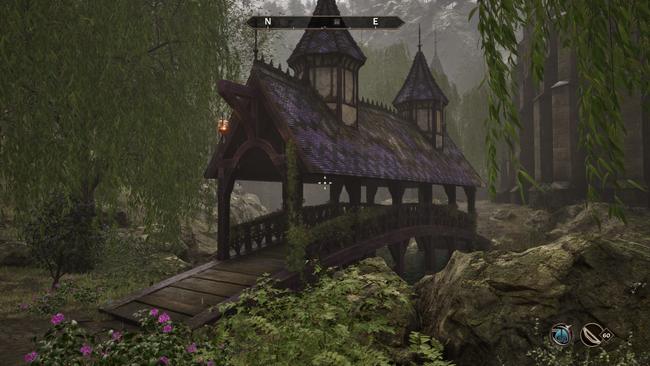
To make matters slightly worse, I found that the limited difficulty options available would affect my experience quite wildly. On the default Adept setting, I found myself feeling like an unstoppable god as soon as I found my first rusty bow. Bump that up one level to Expert, and I'm chugging down potions left and right to stay alive. For the purposes of playing through the remaster, I decided to stay on the easier setting rather than frustratingly struggle through the more difficult one, knowing that the systems underneath it all would be designed to keep me at bay. Overcoming designed friction in RPGs can feel incredibly rewarding, but only if the player is given ample tools as a countermeasure.
Exacerbating the experience was the lack of meaningful environmental exploration that I found during my time in Cyrodil. Most points of interest on the map essentially boil down to one of four archetypes -- either it is a cave, a fort, a mine, or an Ayelid ruin, and the first three of these are often extremely similar. As a bit of a completionist, I often found myself fully exploring each area only to mow down maybe 12-20 enemies, finding a chest at the end that might have something good inside of it, and leaving to head to the next nondescript icon on my map.
Even if an eventual quest later would point me to a location that I had already explored, the game is designed in a way that the item or enemy that I would be expected to find at the objective for that quest would not spawn until I revisited, with only the rare case of being able to find the item or person "early". What this meant is that I found myself uninspired to explore anywhere unless I was explicitly told to, which is not a good feeling.
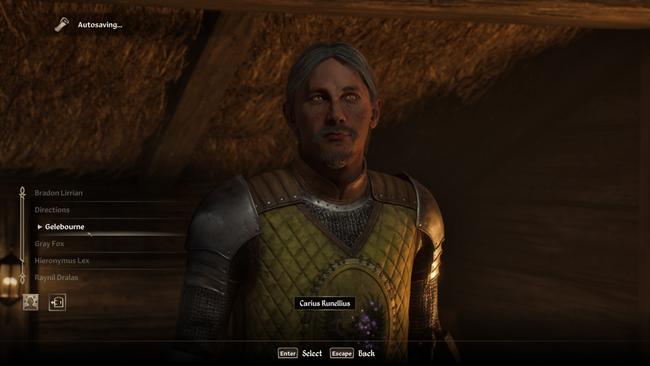
Lastly, one part of Oblivion that I had remained largely oblivious to over the last two decades was, surprisingly, how the eponymous Oblivion Gates worked. As the story of Oblivion progresses, eventually several tears ("gates") to the Daedric realm open up across Cyrodil that the player is encouraged to battle through and close for some rewards. These excursions largely put combat at the forefront, which is not a strength of Oblivion in my opinion. After clearing a handful of story-encouraged gates in this manner, I found myself avoiding these entirely.
As a penultimate comment, I found that I did not jive with the storytelling of The Shivering Isles at all, Oblivion's main expansion that is packaged within the remaster. Set in a realm divorced from the goings-on in Cyrodil and featuring one of the least interesting Daedric characters in a faux Alice in Wonderland style setting, none of it came together for me. For better or worse, having it so separate from the main experience meant that I don't feel that my bouncing off of the expansion content really colored my overall experience with Oblivion Remastered much at all.
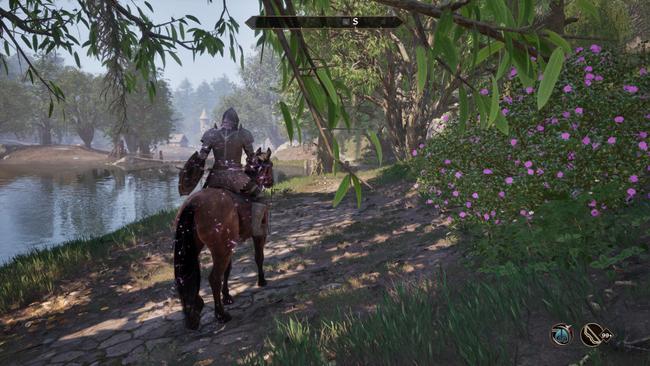
As a final, more positive note, I did enjoy several of the much-praised guild quests -- especially that of the Thieves' Guild. While the Dark Brotherhood questline does have a really fun twist of expectations partway through it, I felt that the overall story and characters of the Thieves' Guild were a bit more poignant and memorable throughout. Having Grey Fox explain exactly how the curse of his Nocturnal Cowl worked was a really cool storytelling moment that took me by genuine surprise, one that I am very glad was not spoiled for me.
Re-reading my own thoughts here, I didn't expect to be quite so down on the Oblivion Remaster overall. I'm still very glad I played it so that I could experience it for myself instead of living vicariously through the reception of others, but the end result for me was an underwhelming time-capsule of a game that is hindered by some critical shortcomings. The lack of an interesting overall story hook, samey exploration from start to finish, and frustrations with level scaling hindered my enjoyment significantly.